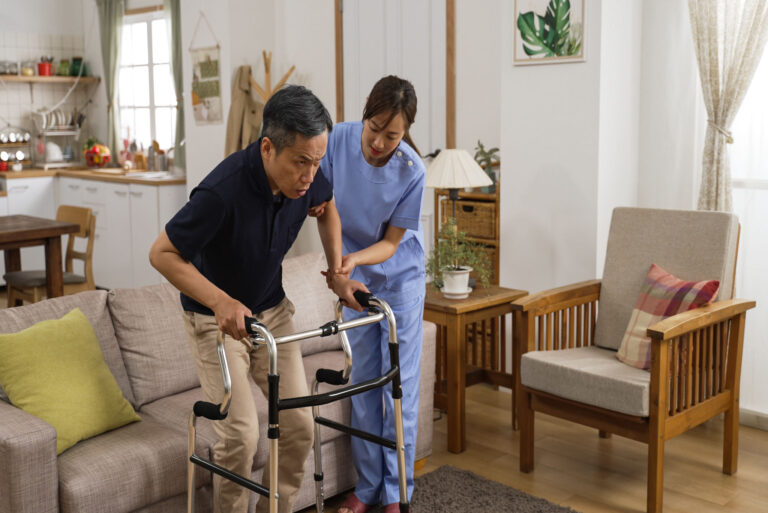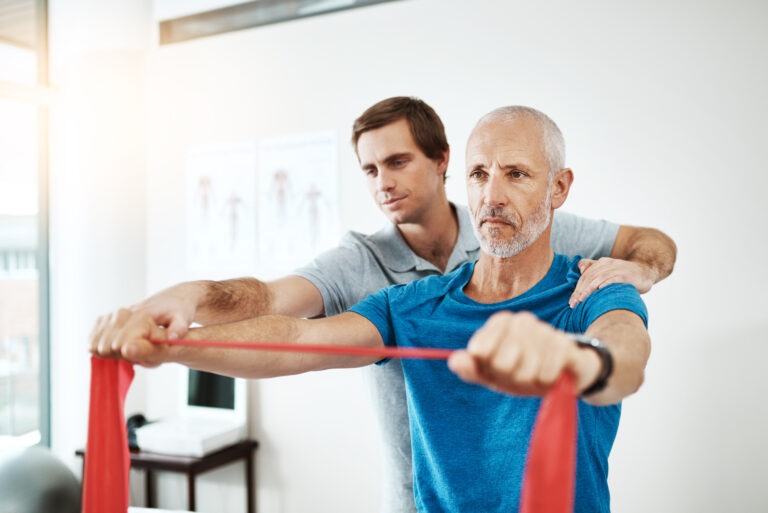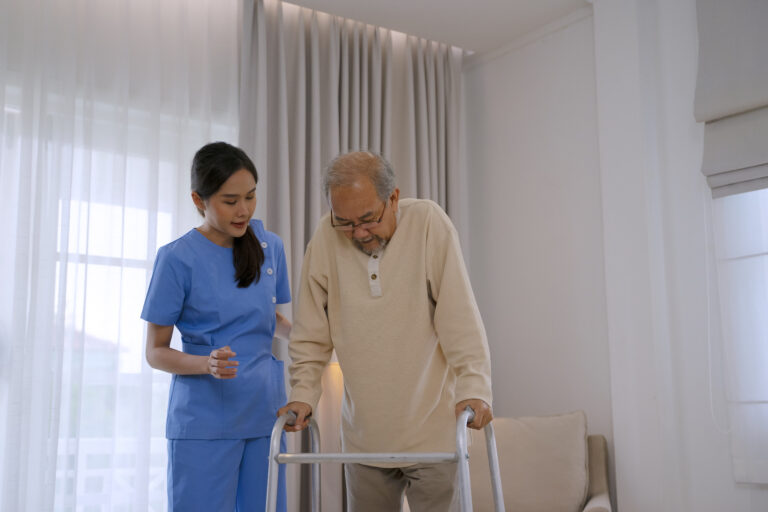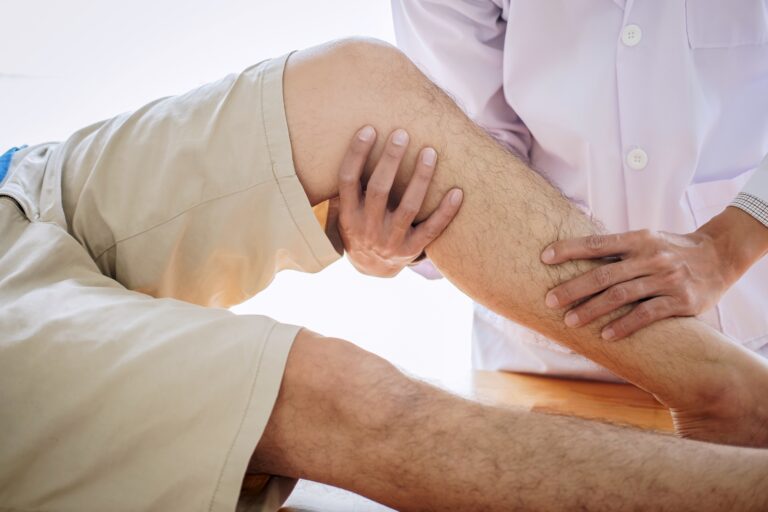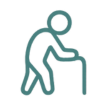Spinal Cord Injury Rehabilitation at Home
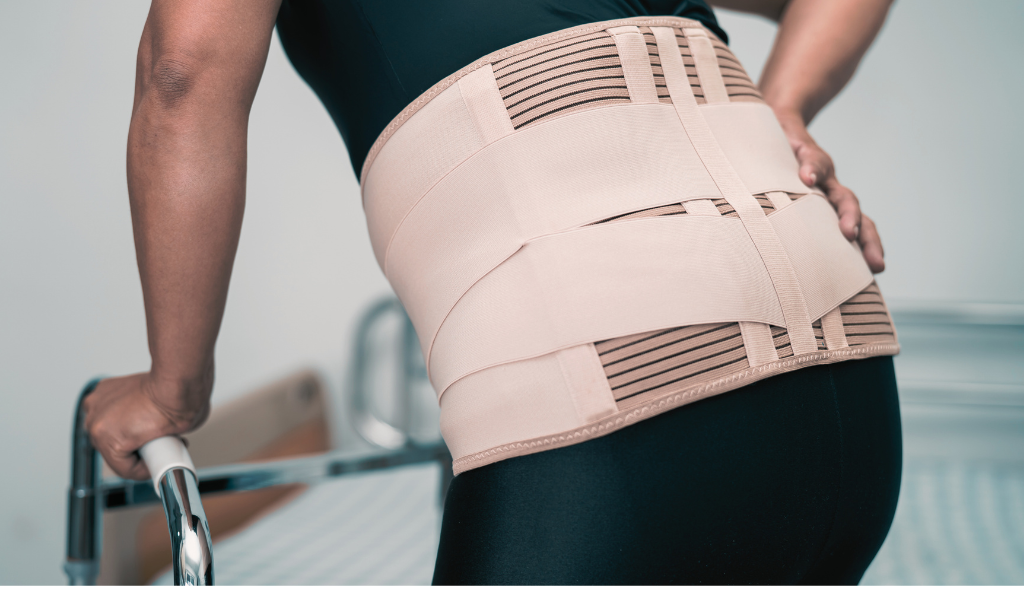
Understanding Spinal Cord Injuries
An injury to the spinal cord (SCI) is a result of trauma or injury that causes disruption to the connections between the body and brain. This can result from car accidents and falls, sports injuries or medical conditions. Based on the location where the injury is triggered and the extent of it, SCI can affect movement or sensation, bladder or control of the bowel, as well as breathing. A few sufferers might experience either complete or partial paralysis and others experience diminished strength and balance or coordination. While the consequences could be devastating, specialized neuro-physiotherapy is a crucial element in helping to regain function, maintaining independence and enhancing the living quality.
Common Challenges After a Spinal Cord Injury
Loss of Movement and Sensation
Depending on the level and severity of the injury, individuals may experience partial or complete loss of movement and sensation below the affected area of the spine.
Muscle Weakness or Paralysis
Muscle control may be impaired or lost entirely, affecting mobility, coordination, and independence in daily activities.
Bladder and Bowel Dysfunction
SCI often affects bladder and bowel control, requiring tailored management strategies as part of rehabilitation.
Spasticity and Muscle Tightness
Many individuals develop spasticity — involuntary muscle stiffness or spasms — which can interfere with mobility and comfort.
Pain and Discomfort
Neuropathic pain, joint pain, or muscular discomfort can result from nerve damage or prolonged immobility.
Emotional and Psychological Impact
Coping with a spinal cord injury can be overwhelming, leading to feelings of frustration, anxiety, or depression, especially during the early stages of recovery
Our Approach to Spinal Cord Injury Rehabilitation

Tailored Rehabilitation Programmes
We create individualized treatment plans that are tailored to specific goals, mobility levels and lifestyle requirements.

Assistive Device Training
We provide guidelines for the safe use of braces, wheelchairs, walking aids, walkers or orthotics to improve independence and confidence.

Balance & Coordination Training
We focus with posture and stability and control in order to facilitate better movement and decrease the chance of falling.

Pain Management
Manual therapy, from exercises or thermal treatment, our experts can help to manage discomfort and pain when recovering.

Functional Independence Training
We aid in the retraining of everyday tasks such as standing, transfers or grooming in order to restore independence.

Education & Family Support
We provide patients and their carers with the knowledge of breathing support, pressure treatment and lifestyle adjustments.
Why Choose Rehab Therapist for SCI Rehabilitation

Specialist Neuro Physios
Our team is experienced in spinal cord injury rehab and understands the physical and emotional journey involved.

Home-Based Convenience
We're here for you, all across Buckinghamshire, Hertfordshire, Bedfordshire, Oxfordshire, Cambridgeshire, and London.

Holistic & Personalised Care
Our treatment program supports your mind, body and self-reliance, all based on your current stage of recovery.

Multidisciplinary Collaboration
We collaborate with OTs psychologists, GPs, psychologists as well as other specialists to provide a seamless, well-rounded treatment.

Support Beyond Rehab
We help you use adaptive strategies such as assistive devices, assistive technology, and other community tools.

Flexible & Respectful Approach
We tailor therapy to your needs, comfort, energy levels, and goals. We do this with respect and compassion.
Who Can Benefit from Spinal Cord Injury Physiotherapy
Accident Survivors
SCI is caused by crashes with vehicles or falls that require gradual rehab that is structured and controlled.
Sport-Related SCI
Rehabilitation following injuries sustained through contact sports or other high-impact activities.
Wheelchair Users
Training in transfer, posture and daily mobility exercises to ease strain and improve performance.
Incomplete Spinal cord injury
People who have a lack of sensation or movement can benefit from a specific exercise in balance and strength.
Post-Surgery Patients
Support to regain strength, confidence, mobility, and strength following spinal surgery.
Families & Carers
We offer support and education strategies to help family members who are in recovery.
Areas we cover for Spinal cord injury
Our Physiotherapists visit your home in the areas below and beyond
Regain Independence After Spinal Cord Injury – At Home
The experience of living with spinal injury can be difficult, but with the right care, recovery is feasible. Our physiotherapists are skilled and provide personalised, individualized rehabilitation to your residence.
Success Stories
Alan S., Buckinghamshire
Fiona D., Hertfordshire
Mark L., Oxfordshire
FAQs
Are rehab therapists able to help injury to the spinal cord?
Yes, we offer specialised personalised home-based neuro physiotherapy that is geared to the recovery of spinal cord injuries and rehabilitation.
What are the challenges that physiotherapy can address following SCI?
We aid in improving mobility, reduce spasticity, decrease pain and teach safe use of wheelchairs, mobility aids, and braces.
Do you have contact in conjunction with case management?
Yes, we cooperate with our case managers to provide specific assessments, individualized rehabilitation plans, and regularly scheduled updates on progress to help with goals-driven recovery in the comfort of home.
What happens when a spinal cord injury affects your body?
Based on the severity of the injury, it may result in muscle weakness, paralysis or loss of sensation and issues with bladder or breathing.
Are home-based rehabilitation programs suitable for spinal cord injury?
It is true that home-based physiotherapy can be beneficial and efficient, especially for people with limitations in mobility or who require fitness in everyday environments.

